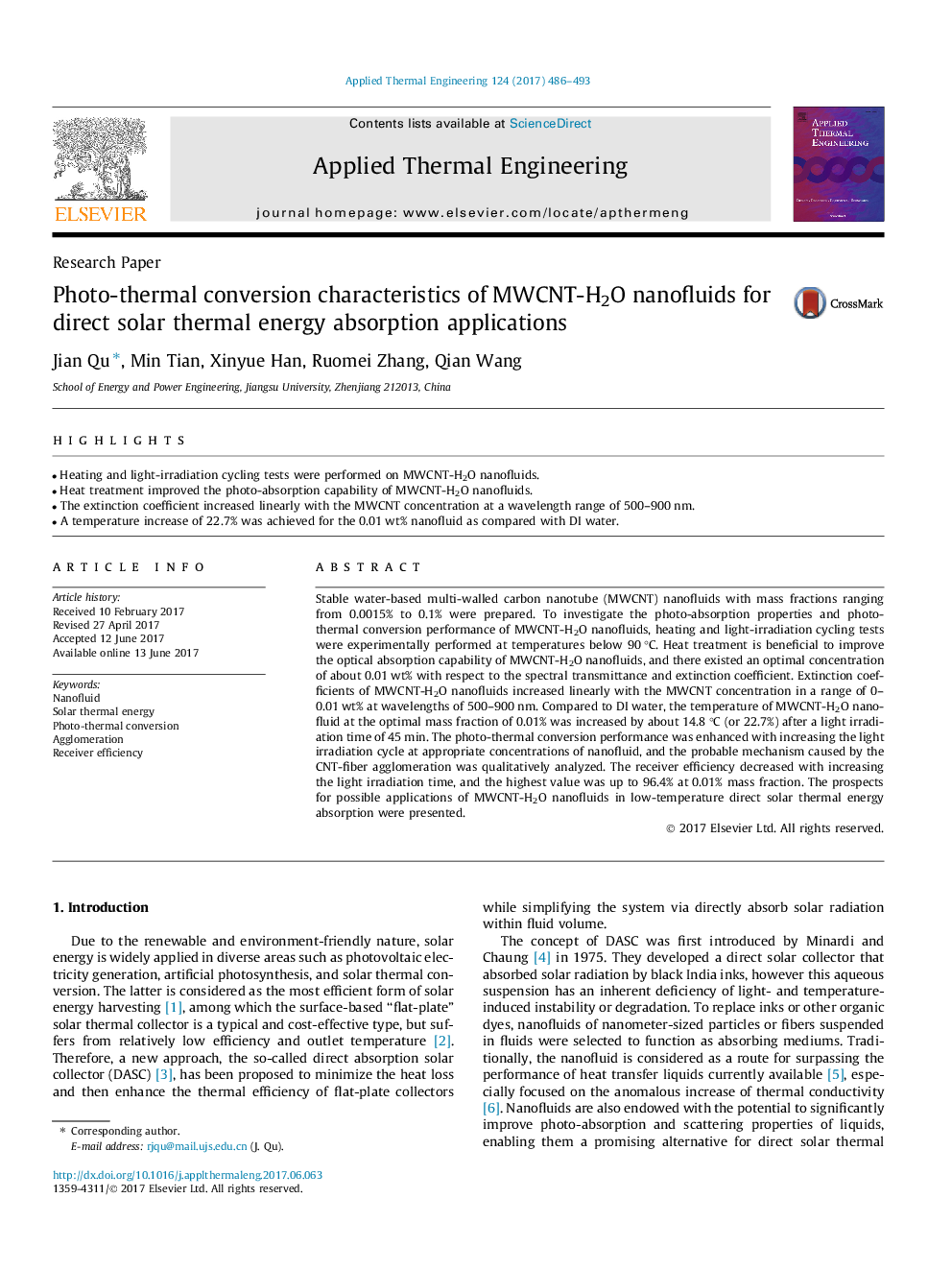| Article ID | Journal | Published Year | Pages | File Type |
|---|---|---|---|---|
| 4990634 | Applied Thermal Engineering | 2017 | 8 Pages |
Abstract
Stable water-based multi-walled carbon nanotube (MWCNT) nanofluids with mass fractions ranging from 0.0015% to 0.1% were prepared. To investigate the photo-absorption properties and photo-thermal conversion performance of MWCNT-H2O nanofluids, heating and light-irradiation cycling tests were experimentally performed at temperatures below 90 °C. Heat treatment is beneficial to improve the optical absorption capability of MWCNT-H2O nanofluids, and there existed an optimal concentration of about 0.01 wt% with respect to the spectral transmittance and extinction coefficient. Extinction coefficients of MWCNT-H2O nanofluids increased linearly with the MWCNT concentration in a range of 0-0.01 wt% at wavelengths of 500-900 nm. Compared to DI water, the temperature of MWCNT-H2O nanofluid at the optimal mass fraction of 0.01% was increased by about 14.8 °C (or 22.7%) after a light irradiation time of 45 min. The photo-thermal conversion performance was enhanced with increasing the light irradiation cycle at appropriate concentrations of nanofluid, and the probable mechanism caused by the CNT-fiber agglomeration was qualitatively analyzed. The receiver efficiency decreased with increasing the light irradiation time, and the highest value was up to 96.4% at 0.01% mass fraction. The prospects for possible applications of MWCNT-H2O nanofluids in low-temperature direct solar thermal energy absorption were presented.
Related Topics
Physical Sciences and Engineering
Chemical Engineering
Fluid Flow and Transfer Processes
Authors
Jian Qu, Min Tian, Xinyue Han, Ruomei Zhang, Qian Wang,
